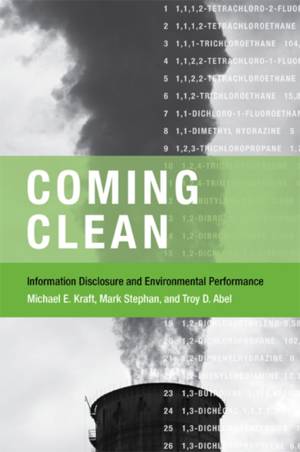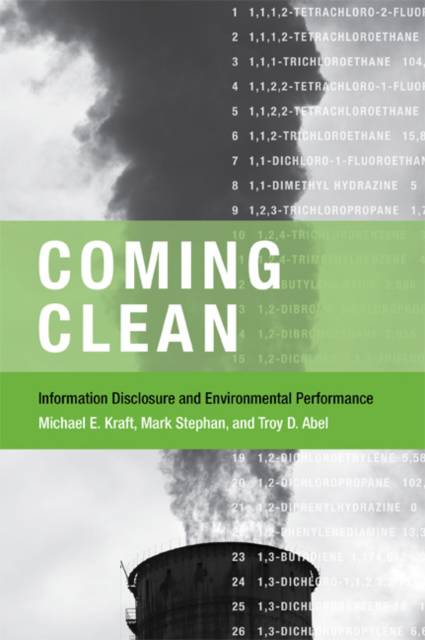
- Afhalen na 1 uur in een winkel met voorraad
- Gratis thuislevering in België vanaf € 30
- Ruim aanbod met 7 miljoen producten
- Afhalen na 1 uur in een winkel met voorraad
- Gratis thuislevering in België vanaf € 30
- Ruim aanbod met 7 miljoen producten
Coming Clean
Information Disclosure and Environmental Performance
Michael E Kraft, Mark Stephan, Troy D AbelOmschrijving
An investigation into the policy effects of requiring firms to disclose information about their environmental performance.
Coming Clean is the first book to investigate the process of information disclosure as a policy strategy for environmental protection. This process, which requires that firms disclose information about their environmental performance, is part of an approach to environmental protection that eschews the conventional command-and-control regulatory apparatus, which sometimes leads government and industry to focus on meeting only minimal standards. The authors of Coming Clean examine the effectiveness of information disclosure in achieving actual improvements in corporate environmental performance by analyzing data from the federal government's Toxics Release Inventory, or TRI, and drawing on an original set of survey data from corporations and federal, state, and local officials, among other sources. The authors find that TRI--probably the best-known example of information disclosure--has had a substantial effect over time on the environmental performance of industry. But, drawing on case studies from across the nation, they show that the improvement is not uniform: some facilities have been leaders while others have been laggards. The authors argue that information disclosure has an important role to play in environmental policy--but only as part of an integrated set of policy tools that includes conventional regulation.
Specificaties
Betrokkenen
- Auteur(s):
- Uitgeverij:
Inhoud
- Aantal bladzijden:
- 249
- Taal:
- Engels
- Reeks:
Eigenschappen
- Productcode (EAN):
- 9780262515573
- Verschijningsdatum:
- 14/01/2011
- Uitvoering:
- Paperback
- Formaat:
- Trade paperback (VS)
- Afmetingen:
- 154 mm x 227 mm
- Gewicht:
- 367 g

Alleen bij Standaard Boekhandel
Beoordelingen
We publiceren alleen reviews die voldoen aan de voorwaarden voor reviews. Bekijk onze voorwaarden voor reviews.











